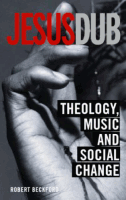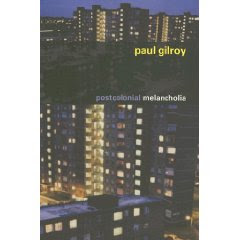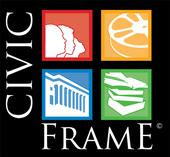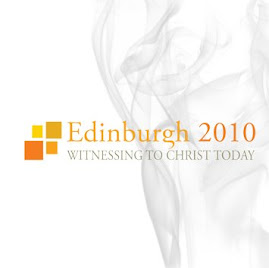URBAN THEOLOGY AND COMMUNITY ORGANISINGTo Begin:
Broad based community organising in the UK is both old and new. It is old because progressive people of faith and no-faith have for centuries engaged in grassroots action for social justice. It is new because the way we work within Birmingham Citizens only began to emerge 20 years ago when the Citizens Organising Foundation was established. Since its formation in 1989 COF has helped to stimulate the development of broad based organisations like Birmingham Citizens in Liverpool, Bristol, Bradford, North Wales, Sheffield and London. Some of these coalitions remain in close relationship with COF whilst others, like Birmingham Citizens, have begun to develop their own futures from the bottom-up.Based on the work of Saul Alinsky in Chicago during the 1930s and 1940s, broad based organising is a pragmatic model social action which unites disparate groups around shared concerns so that their common efforts can bring about achievable change. This model of united social action has become common in the USA where networks like the Gamaliel Foundation and the Industrial Areas Foundation link literally hundred of local broad based organisations in shared civil action.
In an era where the uniting power of religious institutions, political parties and trades unions has waned dramatically, as the American sociologist Robert Putnam notes, broad based organising offers an alternative grassroots approach for faith and community groups who want to make a difference in public life. Jurgen Habermas describes the ‘public sphere’ as the arena within which civic and democratic values have been expressed by an emerging middle class.
[1]In Britain an increasing majority of people have apparently become disillusioned with this political class. BBO is providing religious groups to find new ways of bringing about progressive change and having an impact on public life. Macleod, Henderson and Salmon suggest that since the establishment of the COF in 1989, Broad Based Organising in Britain has developed to a large degree in isolation from other expressions of community engagement.
[2] In spite of an occasional isolationism BBO provides perhaps the most live contemporary example of ‘third estate’ civic activism: not the state acting for people but people acting together for themselves.Much British government policy over the last decade has sought a so-called common public space which revolves round a shared ethic of mutuality, often referred to as social cohesion. BBO operates within this public space but enables religious communities to assert its diversity and multiplicity. Lina Jamoul suggests that although community organising helps different religious groups in the city to work together its focus is not neutral because it is committed to creating a counter-cultural public space where diversity is used to challenge injustice and exclusion.
[3] The work of Robert Putnam on the potential of social capital to resource shared action on common issues helps to summarise the approach taken by BBO. Putnam speaks about the way that social networks and relationships within communities can empower local people, build bridges between different groups and resource change.
BBO is an example of bridging social capital in action.
In light of this brief word about the development of BBO in Britain I want to say a little about how community organising works in practice. Why has it appealed to religious groups in cities like Birmingham?One but not the sameWithin the Christian scriptures Saint Paul compares the church to a body: many parts, each with their own function and character, but one body. When one part of the body is hurt the whole body is damaged. The needs of one part of the body impact on the whole body. Each part needs and is in relationship with every other part of the body. This is an image I have often used to describe BBO within the church but I believe it is an image that clearly expresses the way we work in Birmingham Citizens in a language that is transferable across many different communities. In a city where difference is often viewed with defensive suspicion the use of diversity as a source of strength is a sign of hope. In terms of our action the Pauline Body imagery means that where one member group within Birmingham Citizens expresses a need this becomes a challenge for us all. What happens on one side of the city or to one religious or community group happens to us all and it is this philosophy that has helped us to develop a networked model of action for justice.
The pioneer of BBO, Saul Alinsky, emphasised the importance of self interest as a motivation for action. I have to be honest, I think Alinsky was wrong. What motivates the faith groups that are part of Birmingham Citizens is not self interest but shared interests and a common commitment to social justiceEmpowerment and Democratic Action BBO in Britain has grown largely in inner city communities amongst disempowered people. It has been most effective amongst people who feel either disenfranchised or powerless to bring about significant social change because of their relative weakness. In a sense it can be compared to the Civil Rights movement in the U.S.A and examples of ‘people’s power’ across the globe.
Three characteristics of BBO make this empowerment possible:
1: An emphasis on decisions that are made from the ‘bottom-up’ not the ‘top-down’.
2: A clear commitment to making decisions about campaigns together.
3: An understanding of power as relational and relationships as the basis of action.Issues Based and Organised
Whilst BBO stresses the importance of building long-lasting community organisations, rather than short-term social movements it bears a striking similarity to the characteristics that Manuel Castells suggest mark urban social movements: goal/issue oriented, rooted in a specific context, engagement with structures of power, organised and strategic and stimulated by conscientised organisers. Birmingham Citizens has developed a clear, three tier, organisation: action teams [relating to and delivering specific actions], a strategy team [shaping the day-to-day and strategic direction of BC] and a Board of Trustees [taking legal and management responsibility for the organisation]Focus on Common Commitment to Social JusticeWhilst Birmingham Citizens is not explicitly faith based it is true to say that an overwhelming majority of our member organisations are faith groups [churches, mosques, gurdwaras, temples, synagogues]. BBO has emerged in Britain at a point when some argue we have become a post-religious’ or a secular society. This is not an argument I buy fully. Nevertheless in a society where the values of religion are no longer those of the majority of Britons and no longer provide a binding narrative around which people can gather the values and methodology of BBO offer us the tools to build what I want to describe as a ‘post-religious liberation theology’. As a person of faith who is committed to Birmingham Citizens I see in BBO an expression of what I believe to be God’s Bias to the Oppressed and a channel to express my own preferential option for the oppressed.
The Story Moves On: In the summer of 2004 I co-chaired a series of ‘Community Dialogues’ here in Birmingham, drawing together people from across the inner city to identify key pressures on family and community life. It was out of this grassroots consultation that the Citizens ‘Agenda for Social Justice in Birmingham’ emerged. In April 2005 Birmingham Citizens held its founding assembly when 23 faith groups, community organisations, schools and trades unions from across inner city Birmingham became ‘founding members’ of the coalition. Birmingham Citizens challenged the Chief Executive of Birmingham City Council to work in partnership to address the scourge of drug dealing and gang activity in public parks, to address the rising tide of rubbish and rats in parts of the inner city and to work towards the implementation of a ‘Living Wage’ for Birmingham.
[4] The Deputy Chief Constable of West Midlands Police was challenged to work with Birmingham Citizens to address the breakdown of relations between the police and sections of the community and to work in partnership to provide improved cultural awareness training for police officers in the city. 700 people watched as these challenges were laid and the force of focused broad-based organised ‘people power’ placed pressure on these key officials to agree to work with this new network for social justice in Birmingham.Four years later we have become a more diverse people’s movement which reaches across most parts of our city and includes Hindus, Sikhs, Jews, Muslims and Christians, as well as a range of community organisations and schools. At a point when stories of religion in public life in the UK often seem to revolve around enclosed identities, ethnic/religious ghettoes, attempts to limit Britishness and the so called ‘war on terror’ Birmingham Citizens offers another picture characterised by:1: Bridge building2: Socially progressive inter-communal politics3: Inclusivity4: Solidarity with marginalised communities5: Commitment to placing religious communities at the heart of public life as agents for justiceFurther Work is Needed: It must be noted, however, that in both London and Birmingham BBO exhibit’s a number of significant weaknesses.
1....BBO has displayed an anti-dialogical character that resists networking with other movements for urban which can be expressed as the dismissal of alternative approaches
[5].
2....Whilst asserting egalitarianism the concerns of larger Churches and Mosques and the head offices of the Citizens Organising Foundation in London can appear to outweigh those of smaller faith groups and community organisations.
3....The power analysis within Broad Based Organising presents an outmoded Modernist mode of power relations which takes no account of the transformed nature of power in a Globalised urban age.
4....The amoral pragmatism of the pioneer of Broad Based Organising, Saul Alinsky
[6], which relegates value based activism and elevates self-interest conflicts with the philosophical core of faith based liberative praxis in spite of Jacobsen’s suggestion that, “Self-interest honours both the ’self’ and the ’other’ in the relationship.”
[7].
The Future:Unless BBO in Britain finds a way of expressing this implied solidarity of the oppressed in terms which engage creatively with the uniting values of the Ummah, or the glocal praxis of catholicity, or the inversion of ‘self-interest’ encased in Jesus’ Beatitudes, or his call to make a ‘journey downwards’, the powerful model of community transformation which Community Organising embodies will fail to realise its potential to exemplify a postmodern and post-religious Urban Theology of. If these significant blind-spots are addressed BBO has the potential to reinvigorate radical action for social justice in urban Britain. The model’s affirmation of ‘Liberative Difference’ and a networked approach which challenges cultural dislocation and creeping ghettoisation and its characterisation of Community Organisers as ’political intellectuals’ represent a creative appropriation of the principles of liberation theology in a post-religious urban context. Consequently, BBO can contribute to the framing of a proactive Urban Theology of and Difference which has the capacity to enable radical transformation on the streets of inner city Britain.
NOTES...
[1] Habermas Jurgen [1989], [transl. Burger Thomas & Lawrence Frederick] ‘The Structural Transformation of the Public Sphere: An Enquiry into a Category of Bourgeois Society’, Cambridge, Massachusetts, M.I.T Press
[2] Macleod Jay [November 1993], ‘Community Organising: A Practical and Theological Appraisal’, in the Journal ’Christian Action’ , London, p7. Henderson Paul & Salmon Harry [1995], ‘Community Organising in the UK Context’, London, CommunityDevelopment Foundation, pp vii
[3] Jamoul Lina [2006], unpublished PhD Thesis [accessed at
http://www.londoncitizens.org/ 24.1.2007] ‘The Art of Politics: Broad Based Organising in Britain’, London, Queen Mary University of London, Geography Department, 21
[4] For a summary of the Actions of Birmingham Citizens [2005-2007] see
http://.www.birminghamcitizens.org.uk/ .With reference to the ‘Living Wage’ campaign see: Birmingham Citizens & The Community Union [October 2005], ‘A Living Wage? Mapping Low Pay in Birmingham’, Birmingham, Birmingham Citizens & The Community Union
[5] Henderson Paul & Salmon Harry [1995], op. cit., pvii and Macleod Jay [November 1993], op. cit., 7
[6] Alinsky Saul [1971], ‘Of Means and Ends’ in ‘Rules for Radicals’ , quoted in Cox Fred, Erlich John, Rothman Jack & Tropman John [1974], ‘Strategies of Community Organisation: A Book of Readings’, Illinois, F.E Peacock Publishers, 198 & 200.: Alinsky: “Life and how you live it is the story of means and ends….The man of action views the issue of means and ends in pragmatic and strategic terms….Ethical standards must be elastic to stretch with the times.”
[7] Jacobsen Dennis [2001], op. cit., 51

































